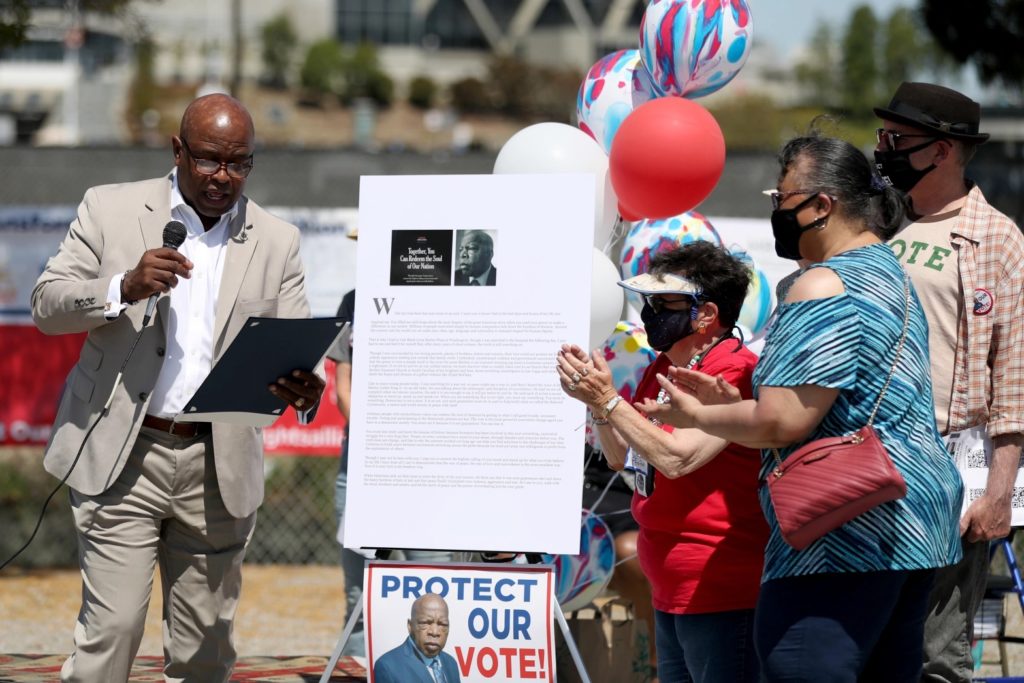Harnessing the Power of Your Circle

The next big wave of change will be powered by your circle of friends.
If you’ve ever told a friend about a candidate or reminded a neighbor to vote, then you’ve already used relational organizing. One recent success of relational organizing was how voters leveraged their relationships to turn Georgia Blue in 2020. Our partners, New Georgia Project Action Fund (NGP AF), were a part of this effort and leveraged relationships and community conversations to contribute to an approximate 25% increase of newly registered Black voters. An added win is that this model allows NGP AF the benefit of creating a lasting infrastructure to mobilize voters. This same success was mirrored during the summer of 2020 as people across the world began conversations with family and followers about injustices faced by Black men and women in America as a result of police violence. While this type of organizing has a new look thanks to technology, relational organizing is deeply rooted in Black history. “Back in the ‘60s, Black churches and small blocks of people organized others not to take public transportation and to instead carpool. That was our relational organizing,” says Mike Griffin, Community Change Action Senior Electoral Organizer.
“Even further back during the abolitionist movement, the underground railroad was a series of relationships where travelers bonded through this special connection of Blackness and pushing back against white supremacy.”
Mike Griffin
Relational Organizing in the 21st Century
Building on this foundation of relational and community organizing is crucial to effecting change in the Black community, especially with primary elections around the corner. “We just need to get people interested enough to dedicate an hour to good conversation,” says Queen Jackson, Community Change Action relational organizing volunteer. “We’ve got to let people know you can’t just sit back and wait and think everything is going to be alright. Use social media to share what you’re unhappy with and then make a plan. What would you do to change it? How do you think it would be changed?”

Social media is just one relational organizing platform that became even more prominent during the pandemic. Apps like Impactive allow users to sync their contacts and easily message others about current issues. Users can also become involved at their own pace and within their comfort zones. “This [tool] is only getting better and better,” says Griffin. “As technology advances, even greater tools will be available in the hands of Black-led organizations.” The Impactive app makes spreading awareness about local issues and building community easier, and Black-led organizations can tap into them to reach folks where cold calls fall short.
Whether done digitally or in person, relational organizing continues to be a powerful tool for those who share a common message and its resurgence is right on time for Black-led organizations. “Given what we know is coming down the pipeline, it’s going to take every progressive organization to pressure their Congress members and let others know they have to vote,” says Jackson. “We’re always running after [a decision] and we need to start getting ahead of the problem.”
Individuals or leaders who need help getting started with relational organizing can join the weekly Community Change Action meetings for relational organizing training.